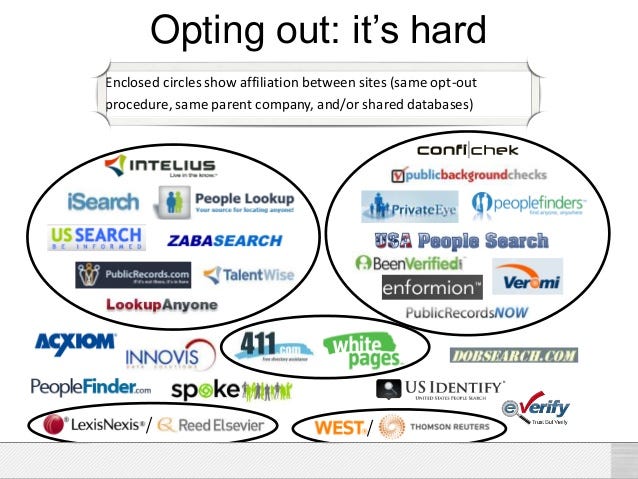
In today's interconnected world, safeguarding personal information has become increasingly vital. With the proliferation of numerous platforms, maintaining privacy can feel like a daunting task. The sheer amount of personal data being exchanged often goes unnoticed. Many individuals are unaware of who accesses their information and for what purpose. Awareness is the first step to reclaiming control over your privacy.
Various entities routinely collect, analyze, and share information about users. This process can happen without the knowledge of the individuals involved, leading to potential misuse. As a result, navigating this landscape can be incredibly complex. However, it is possible to strike a balance between enjoying the benefits of digital platforms and protecting sensitive details.
Finding effective ways to limit the reach of these entities requires knowledge and action. It involves proactive measures that can empower individuals. There are tools and strategies available that can help you regain control without sacrificing your online experiences. By understanding your options, you can craft a personalized approach to privacy management.
Taking the initiative to safeguard your information doesn't have to be overwhelming. Engaging with various resources and support systems can lead to informed decisions. From adjusting privacy settings to utilizing specialized services, every step counts. It’s essential to stay updated on practices that promote confidentiality. With a little effort and determination, you can navigate this landscape effectively.
Understanding Data Brokers and Their Impact
In the digital age, an invisible web affects our daily interactions. Various entities gather information about individuals. This collection of details happens through numerous channels. Often, people are unaware of how much of their personal information is out there. The consequences of this information gathering can be significant.
These entities collect a variety of personal details, which may include:
- Purchasing habits
- Online behavior
- Demographic information
- Location data
- Social connections
Once gathered, this information can be sold to advertisers, and marketers, who then target individuals with tailored campaigns. Understanding the intricacies of this practice raises numerous questions about privacy and autonomy. Each individual becomes a part of a larger data picture, often without their consent. This lack of awareness can lead to potential misuse of personal information.
Many might assume that their online actions are private. However, the reality is quite different. It’s crucial to grasp how these practices can shape experiences. Companies can influence what individuals see, what products are recommended, and even the prices they pay. Ultimately, the impact extends beyond mere advertisements; it can affect decision-making, self-perception, and even personal security.
Furthermore, these practices can perpetuate biases. When certain groups are profiled or targeted disproportionately, social implications arise. It can lead to systemic issues in representation and fairness. Therefore, raising awareness about such practices becomes essential for fostering informed discussions about privacy rights and protections.
Individuals may find themselves entangled in a complex web of information sharing. The implications of this are profound. Those seeking to maintain their privacy must navigate a landscape filled with constant surveillance and data collection. It's a challenge that demands attention and action.
Identifying Common Data Broker Practices

Understanding how personal information is collected and utilized is crucial for safeguarding privacy. Many organizations engage in practices that often go unnoticed by users. These entities employ various strategies to gather, analyze, and sell information. As a result, individuals may unknowingly contribute to the extensive repositories of personal data. Familiarizing yourself with these common techniques can empower you.
- Information scraping from social media platforms.
- Tracking online browsing habits.
- Utilizing public records for background checks.
- Aggregating purchase histories from various merchants.
- Analyzing mobile app usage to create user profiles.
These practices range from seemingly harmless to more intrusive methods. For instance, some companies may scrape information from social networks, compiling profiles based on users' likes, shares, and connections. Others track online activity across multiple websites, employing cookies and similar technologies to build a detailed picture of browsing habits. Additionally, public records are often leveraged to gather insights about individuals, including employment history or property ownership. Data collected in this manner can also be enriched by analyzing transaction records from retailers, creating comprehensive profiles that facilitate targeted advertising.
- Understanding the nuances of data collection processes.
- Recognizing the various types of personal data that may be collected.
- Being aware of potential consequences of sharing information online.
By grasping these common practices, individuals can begin to formulate strategies to protect their privacy. Knowledge is a powerful tool, enabling users to navigate the digital landscape with confidence. Ultimately, being aware of how information is collected and what is at stake fosters a sense of control over personal data. Engage thoughtfully with platforms that require your information, and consider the long-term implications of sharing details.
Steps to Opt Out Effectively

In today's digital world, safeguarding personal information has never been more critical. Many individuals unknowingly share their information, leading to potential privacy concerns. Making informed choices is essential. This section will provide practical guidance on taking control over personal details, ensuring a higher level of confidentiality.
First, recognize your individual privacy preferences. Understanding what information you want to keep private is crucial. It can start simple; consider what you are comfortable sharing. Gathering this insight helps you identify the best course of action for your needs.
After clarifying your preferences, locate trustworthy resources that allow you to manage your online privacy your information. Numerous platforms exist to assist in this process. You may come across various tools and websites designed specifically for this purpose. Some offer step-by-step guides, while others streamline the procedure for users.
Next, develop a strategy to monitor your information regularly. It’s not a one-time task; rather, it’s an ongoing commitment. Set reminders to check on your personal data every few months. Staying proactive enables you to identify any breaches before they escalate.